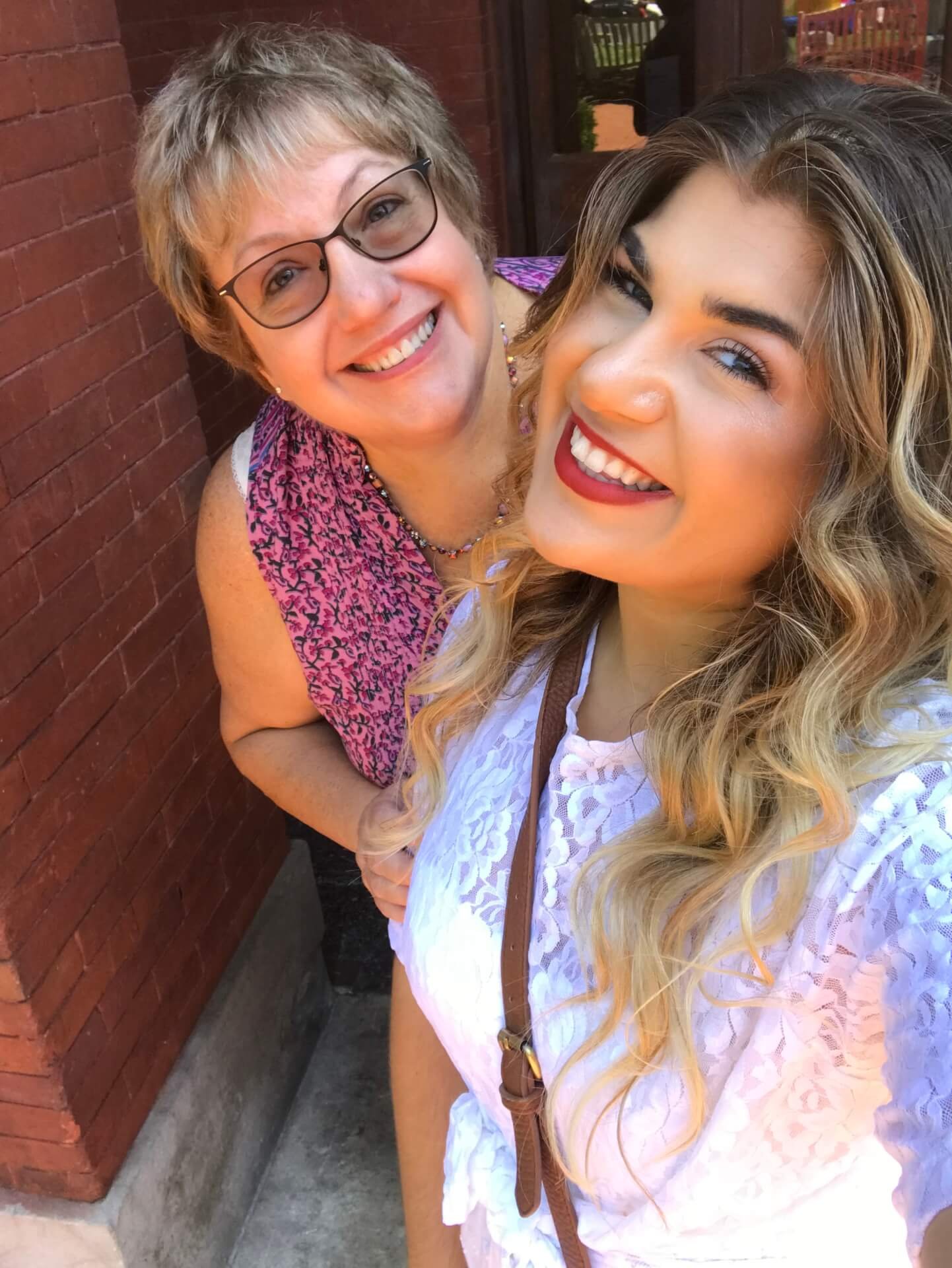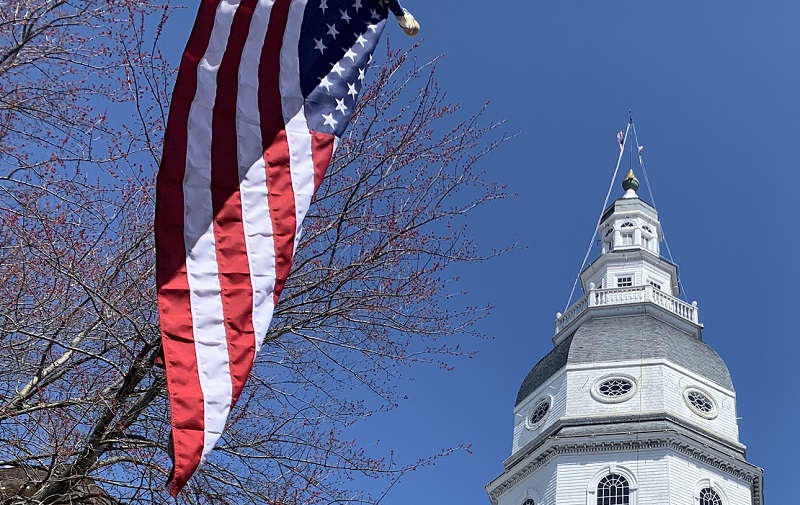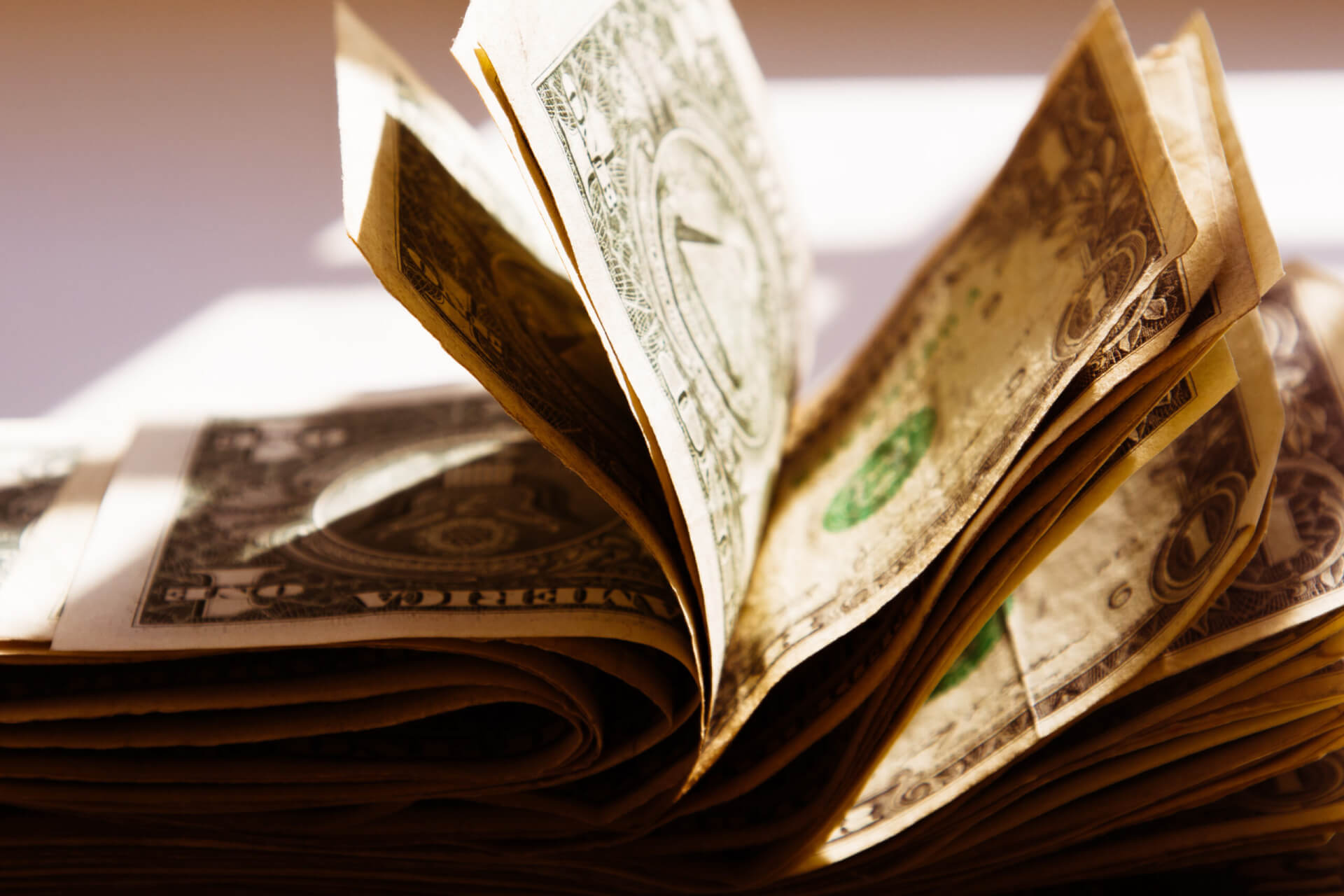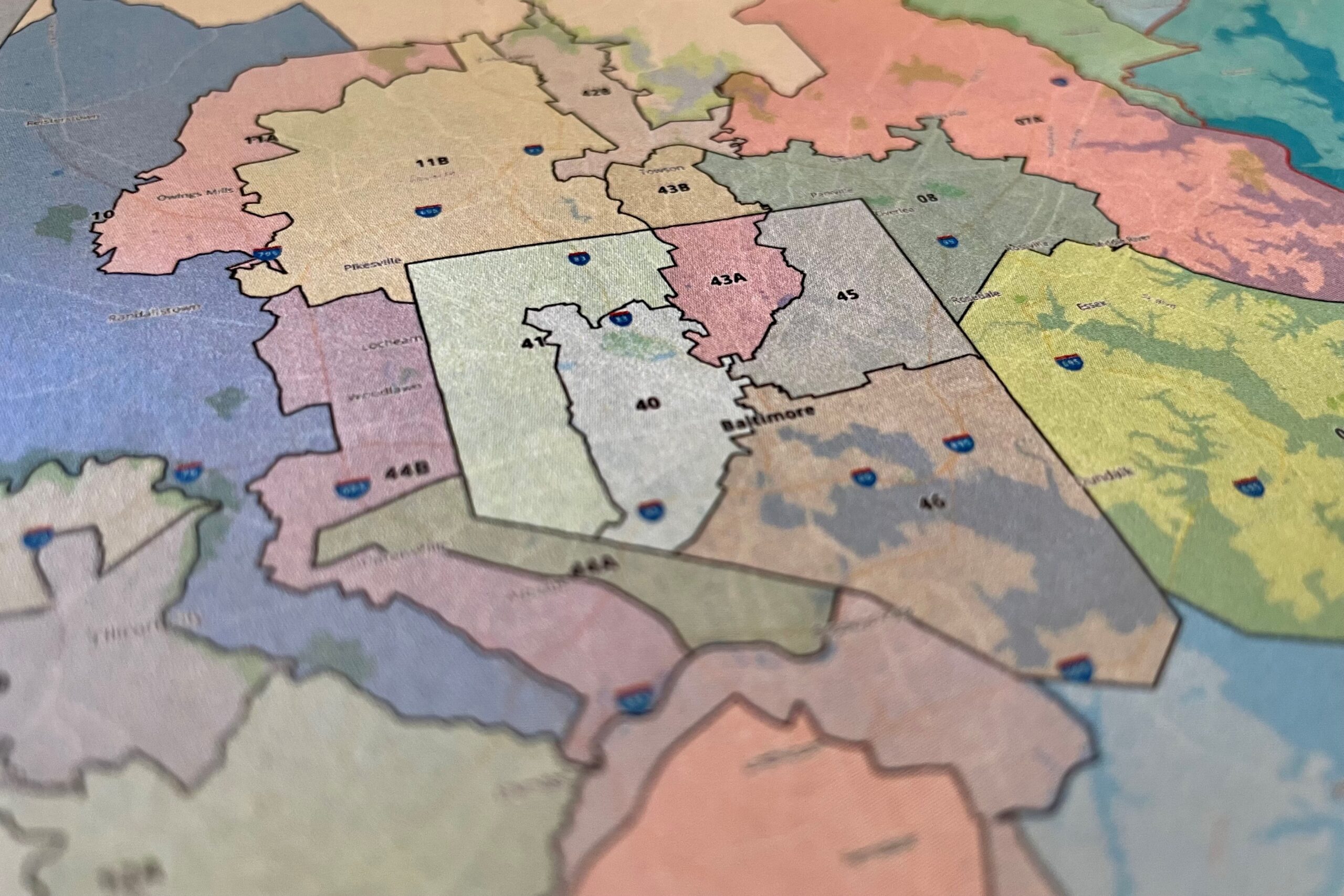Feeling Lost at Sea During COVID-19? Cruise Ship Performer From Md. Literally Has Been for 7 Weeks

The COVID-19 pandemic has left Maryland native Emily Freeman confused and adrift — literally.
She and more than 90 other North American citizens from crews on both the Princess and Holland America cruise lines find themselves isolated aboard the Emerald Princess cruise ship, floating in close proximity to the Bahamas with no end in sight.
Because of restrictions put into place by the Centers for Disease Control and Prevention, none of them can disembark their ship on American soil.
“We’re just being shuffled around at this point and I feel badly for Princess despite the fact that they’ve taken the best care of us,” Freeman told Maryland Matters in an interview Tuesday over WhatsApp. “They shouldn’t have to. Like we shouldn’t be their responsibility at this point.”
“It literally feels like we’re a citizen of Princess Cruises more than a citizen of the United States of America.”
Freeman, a performer for Princess Cruises who grew up in Bowie and also occasionally uses the stage name Ezra, had worked for the fleet for just under a year when the Diamond Princess cruise ship saw a mass outbreak of COVID-19 off of the coast of Japan in February.
Regardless, she signed her second contract and boarded the Sky Princess, another ship in the company’s fleet, on March 8.
To her knowledge, up to that point, COVID-19 cases were still largely concentrated in Asia. Her contract kept her in the Caribbean until early April when she would transfer to the Baltics until her tour ended at the end of July.
“So I knew it was a possibility, but I never thought any of this would happen,” she said.
Her mother, Nancy Freeman, said that when Emily left to start her new contract with Princess Cruises in early March, she was nervous but “wasn’t frantic.”
“You know, they say that hindsight is 20/20, and had we known then what we know now … we might have made a different decision about whether she should go,” she said in a phone interview. “You know, it was a different time. Everything just happened so fast.”
Three days into her new contract, Emily found out that Jan Swartz, Princess’ CEO, was pausing operations. Before long she found herself on a ship with no passengers.
“I had not received any information,” Emily said. “All I knew was that I was staying on board because they had to, obviously, arrange travel for all the crew members on [the] Sky [Princess] and just fleet-wide.”
A dream turned nightmare
Freeman described the first two weeks aboard the Sky Princess without passengers as “a dream”: while they waited for news from the cruise line’s corporate headquarters, all crew members were moved to rooms with balconies and employees from all over the world got to enjoy the ship in ways previously unthinkable.
“People that were used to being totally behind the scenes, maybe working the galley, got to hang out by the pool as we were just waiting, awaiting our repatriation,” she said.
Things took a turn when, after two weeks of no outside exposure, the Sky Princess started to experience a slight influenza outbreak.
On the evening of April 1, the ship’s captain announced over the intercom that the crew was to go into self-isolation, meaning all crewmembers were to stay in their cabins unless performing essential duties or reporting for meals for two weeks.
Freeman said she wished it was an April Fool’s joke. It was not.
“That was really hard,” she said. “It was really hard.”
Freeman described measures Princess took to accommodate the workers who were under isolation, like updating them every day “at 12 noon, on the dot” about the number of influenza cases aboard the ship and any new information from the corporate office, their captain ending every announcement with the reminder that “the sun will shine again.”
After the initial two-week isolation period, Freeman and the rest of the crew were allowed once more to roam the decks of the ship — masked and from a distance, at first, before returning to business as usual.
Over time, Freeman said that the crew had heard rumors that the Princess fleet was going to use their ships as “ferries” to return their workers to their home countries. So when the Sky Princess docked at the port in Fort Lauderdale on April 23 she assumed she’d be able to disembark.
“We did not,” she said. “It’s all the CDC ruling.”
CDC cites ‘complex logistics’ of repatriating crew
According to the CDC, what Freeman is experiencing is an extension of a No Sail Order initially introduced on March 14 that directed cruise ships to suspend operations in compliance with their recommended guidelines.
Under this directive, fleets were to develop and enforce COVID-19 prevention and mitigation plans that track cases of respiratory illness, including COVID-19, in their passengers and crew and establish testing, isolation, hospitalization and transportation protocol.
Days after the rule was issued in March, cruise lines collaborated with government officials to repatriate more than 250,000 guests from over 100 ships.
Per the extended order issued April 15 and published in the Federal Register, as of late March, several fleets were still experiencing COVID-19 outbreaks among crew members and isolated passengers, including the Coral Princess.
The document states that at the time of its publication two weeks ago, there were about 50 cruise ships anchored off of the East Coast and the Bahamas carrying nearly 48,000 crew. On the Pacific and Gulf coasts, there were approximately 45 ships with around 32,000 crew members aboard.
The CDC knows of at least 15 ships with suspected coronavirus cases among the remaining crew.
The document lists a series of “public health concerns” regarding repatriation, including hospital surges and supply shortages.
“Moreover, safely evacuating, triaging, and repatriating cruise ship crew involves complex logistics, incurs financial costs at all levels of government, and diverts resources away from larger efforts to suppress or mitigate COVID-19,” it read.
The document indicates that the CDC struck an agreement with the Cruise Lines International Association in March.
The organization drafted a plan proposing “industry management of suspected or confirmed cases of COVID-19 without burden on the U.S. government.”
Under this plan, the cruise industry would have been “responsible for transporting the [exposed or infected] individuals in appropriate buses, cars, or ambulances.” It further suggested that five ships be made available for the purposes of self-isolation.
A new plan was drafted by the Cruise Lines International Association earlier this month. The CDC said that this newly introduced “plan must go further to reduce industry reliance on government and shoreside hospital resources.”
Princess is a member of the Cruise Lines International Association.
The CDC published interim guidance for fleets to follow during the duration of the No Sail Order, which is consistent with the lockdown Freeman is facing right now.
The recommendations suggest that cruise lines should not request to repatriate their asymptomatic crews until their plans mandated under the No Sail Order have been approved.
In the instance that a disembarkation request is approved, the CDC says that repatriation should be facilitated by a “foreign government- or industry-chartered private transport,” and that fleets should follow a series of guidelines to ensure that their asymptomatic crew members do not come into contact with anyone who is infected.
Crew members who are approved to disembark must give 72 hours’ notice to their local government and health department. Additionally, they cannot stay in a hotel, use public transportation, enter a public airport terminal, fly on a commercial airline or have a layover that lasts longer than eight hours.
In order for crews to leave their ships, fleets must sign documents that certify that they have followed the CDC’s requirements including providing non-commercial travel and cloth facemasks to crew members and instructing them to self-quarantine for two weeks after returning home.
According to the CDC’s website, these documents have been provided to each cruise line with ships in U.S. waters.
Freeman said the day she was not allowed to get off the ship left her with an indescribable feeling.
“I felt like I had to constantly be making calls and just fighting for my right back into my own country,” she said.
Freeman said she’s confused about why she can’t leave, because the crew has been isolated from outside contact for seven weeks, getting their temperatures checked twice daily.
“We’re actually healthier onboard than we are at home,” she said. “But this can’t be a permanent solution. We can’t just float around the Bahamas forever until there’s a cure for coronavirus.”
She’s especially confused because around the time that she was barred from disembarking, two American entertainers were allowed to leave a different cruise ship on what she said the CDC called “compassionate grounds.”
She also said that as of Tuesday afternoon, a group of Peruvian and Argentinian crewmembers aboard the Caribbean Princess ship was allowed to disembark at Fort Lauderdale and hitch a charter flight to Peru.
Calls from home
Nancy Freeman said that about a week ago the cruise ship company started to repatriate all non-essential crew, consolidating people from different regions of the world onto separate ships.
“And so the ship that went to Europe is gone. The ship that’s headed to the Philippines is gone, the ship is going to South America’s gone,” she said. “Those countries are welcoming people back. But the Americans and the Canadians had nowhere to go.”
Emily Freeman said she’s thankful for the work her mom has done to try to bring her home. She said that because of that work, CDC officials recognize her name.
“Every time they get a call and someone says, ‘I’m calling on behalf of Emily Freeman,’ apparently by the time my mom actually called they said, ‘Oh, yeah, we know Emily Freeman. We’ve had 34 calls about her,’” Freeman said.
Nancy Freeman has been working the phones since it became clear that the family was going to have to fight to bring her daughter home.
“I’ve been in touch with both senators’ offices, with the governor’s office, with many other people — anybody I could think of I’ve been on the phone with and emailing — and pretty much the conclusion is it’s the CDC that’s keeping the Americans from getting home,” she said.
Nancy Freeman explained that State Department officials have considered having Emily and the other U.S. citizens on the ship disembark in a foreign country to fly home, “but that seems a little ridiculous when they keep porting in Fort Lauderdale.”
She said that even if Emily were able to leave her ship at the port in Fort Lauderdale, according to new CDC guidelines she would be unable to rent a car, take an Uber or Lyft, stay in a hotel or fly on a commercial airline.
“My plan was if that ends up being the case, I’ll just fly down to Florida, rent a car myself and pick her up,” Nancy Freeman said. “But … that doesn’t help the other 53 Americans who may live in Seattle or, you know, wherever. And plus it just doesn’t make any sense.”
“It’s so frustrating because why won’t America let the Americans home?”
State Del. Geraldine Valentino-Smith (D-Prince George’s) said that Nancy Freeman, who “lives across the way,” contacted her about a week ago to see what can be done to bring Emily home. Valentino-Smith said she and state Sen. Douglas J.J. Peters (D-Prince George’s) connected Nancy Freeman to congressional legislators.
Valentino-Smith told Maryland Matters in a phone interview that a combined effort by the governor’s office and state and congressional lawmakers has made some headway, “but at this point, we don’t have a definitive response … in terms of getting her back to the United States.”
Sue Walitsky, a spokeswoman for U.S. Sen. Benjamin L. Cardin (D-Md.) said it “sounds like things are moving in the right direction.”
She told Maryland Matters in an email that as of last Thursday, CDC officials said they were taking steps toward forwarding final documents to the cruise line.
Once Princess receives these documents and certifies they have met the standards, Emily and the rest of the crew may disembark.
“We are working to confirm if the document was sent and therefore the ball is with the cruise line, or if they are still waiting on the CDC,” Walitsky explained.
Emily said she hopes to be home before her 24th birthday in mid-June.
Silver lining
Since her disappointing trip to Fort Lauderdale last week, Emily Freeman has been moved to a different ship and placed back on self-isolation in her 231-square-foot bedroom.
She said it reminds her of the Netflix game show “Love Is Blind,” because she can talk to crewmembers through her balcony, but can never see any of them.
“This situation has brought out like all the colors of the emotional spectrum,” Freeman said. “I’ve had days where I’m like, ‘Oh my gosh, I’m never going home, like, this is where I live now. I live at sea.’”
Freeman said she’s also had days where she feels like she can’t move, especially during her first bout of self-isolation. Now that she’s been transferred, she feels more optimistic.
“You know, it just feels like the ball is rolling now and it’s rolling in the right direction,” she said.
Freeman has been documenting her experience through her TikTok social media account. Some of her videos have gotten thousands of views.
Freeman said viewers ask her if she plans to return to work on the cruise line after this ordeal is through. Her answer to them is a resounding “absolutely, yes, 1,000%.”
She said that the way that Princess has treated her and the rest of the crew since the outset of the public health crisis, from the level of transparency to the care administered to crewmembers, has earned her loyalty.
“Right now it’s like their priority is just people,” she said. “It’s not saving company name. It’s not saving the image. It’s taking care of the guests and the crew members and I think that speaks volumes.”
A NOTE TO OUR READERS
In these uncertain times, we’re here for you. We have a page dedicated to our reporting on COVID-19 in Maryland. We’ll continue to report with an eye toward the humanity of our sources and a commitment to public accountability.
Stay informed by signing up for the Maryland Matters Memo — our daily morning news roundup, delivered to your inbox. Free.
And if you are able, please consider a tax-deductible contribution to support our nonprofit newsroom.
We’re burning the candle at both ends — doing all we can to keep ourselves, and everyone else, as safe as possible — as we keep you informed.
Please take care!




 Creative Commons Attribution
Creative Commons Attribution